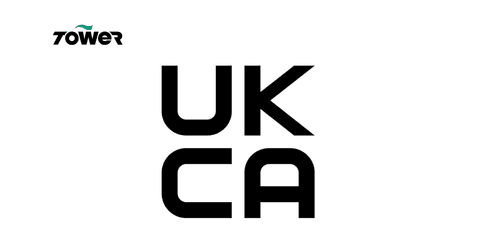
The UK Conformity Assessed (UKCA) mark is now replacing the CE and reverse epsilon markings. This allows the UK to have control over its goods regulations and maintain high product standards.
As the impact of these changes is significant within many industries, the UK Government has made some key changes that will make it much easier during the transition to the new markings.

It was agreed that CE marked workplace products would be accepted in the UK until 31 December 2022, including workplace goods that have been assessed by an EU-recognised notified body.
It was originally planned for it to be mandatory for businesses to use the new mark at the end of 2021. But in September 2021, the Government delayed its compulsory use until 1 January 2023.
From 1 January 2023, it will be a requirement for workplace products and other goods placed on the UK market to bear the UK Conformity Assessed (UKCA) mark.
Up to 31 December 2023, the UKCA can be placed on an accompanying document, if not placed directly on the product. From 1 January 2024, it must always be placed directly on the product.
Now the UK Government has announced a series of changes that will make it easier for businesses to apply the new UKCA mark for products placed on the UK market. These include:
Any conformity assessment activities undertaken by EU bodies before 31 December 2022, will be considered as the basis for UKCA in 2023. Legislation will be brought forward into 2022 so that manufacturers can apply the UKCA mark on these products without the need for re-testing.
CE marked products that are manufactured and imported into the UK by the end of 2022 to be sold, no longer need to meet UKCA requirements. This will eliminate the current need for retesting and recertification for products that are imported whilst the UK recognised CE requirements.
The UK will continue to accept spares onto the GB market that comply with the requirements that were in place at the time the original products or systems they were being used to repair, replace, or maintain were placed on the market. This will help to address concerns about the availability of spare parts and ensure businesses and organisations avoid disruption to their operations.
To make it cheaper and logistically easier for businesses to continue to supply goods to the UK, legislation will be brought forward to extend current labelling easements to allow important information and other UKCA markings to be added to products using a sticky label or an accompanying document, until 2025.
Manufacturers of construction products under AVCP system 3 – such as radiators, sealants, and tile adhesives – whose products are tested by an EU notified body before 1 January 2023 will be able to obtain a UKCA mark without having to retest through a UK-approved body.

The government has made these changes after listening to the concerns of UK businesses. And the easements and delays have been welcomed by those concerned by the transition to the UK Conformity Assessment Mark.
It has also removed the unnecessary process of testing products more than once under the same set of rules and safety requirements. This would have disadvantaged businesses while providing no additional benefits or deliver additional market knowledge.
To talk about how the new changes might affect your business, contact us on 01202 718000 or fill out the contact form below.